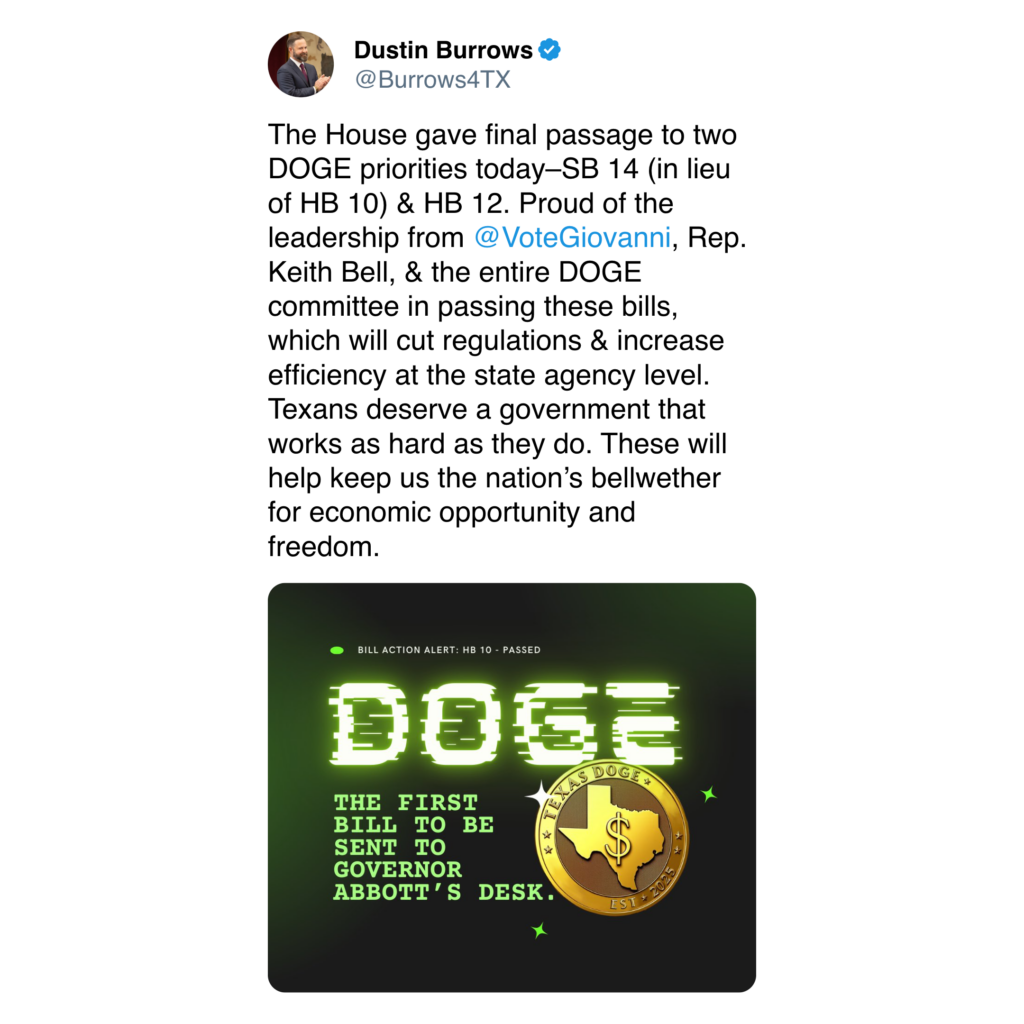What happened: Texas has been ranked the Best State for Business for the 21st year in a row by Chief Executive magazine.
Tell me more: Last week, Texas Gov. Greg Abbott signed into law SB 14 (Texas DOGE) – the first piece of legislation enacted into Texas law this session. The bill passed with bipartisan supermajorities in both the Texas House and Texas Senate, and includes myriad reforms backed by the Coalition for Regulatory Efficiency and Reform, of which TLR is a proud member.
- Critically, SB 14 will help modernize Texas’s regulatory system and support continued economic growth for Texas.
- The law builds on the Governor’s Small Business Freedom Council’s recommendations and will slash regulations, put stricter standards on new regulations that could be costly to businesses and ensure Texas remains the best state for businesses of all sizes.
In his own words: “Texas offers businesses the freedom to succeed. We will continue to cut red tape and partner with job-creating businesses and innovators to build a stronger, more prosperous Texas for decades to come.” — Gov. Greg Abbott
TLR Thoughts: TLR applauds Gov. Greg Abbott, Lt. Gov. Dan Patrick, Speaker Dustin Burrows and members of the Texas Senate and Texas House for their leadership and for taking swift action to reduce the regulatory burden on Texas.
Read the full article here.

